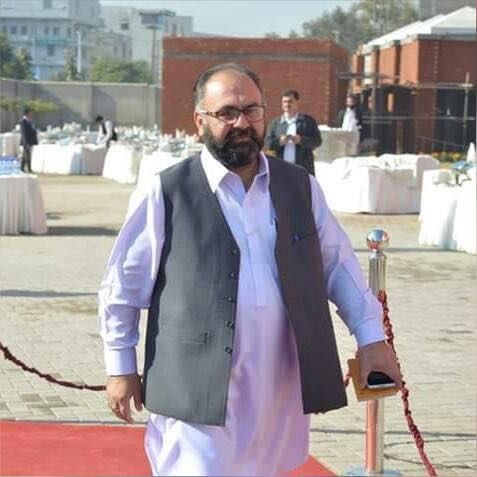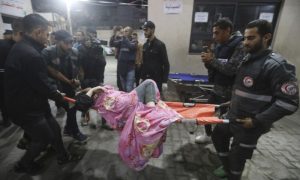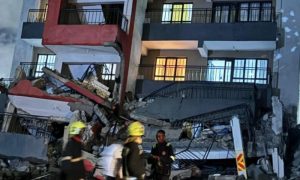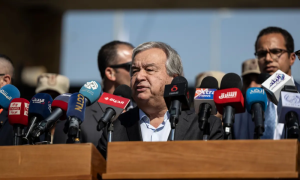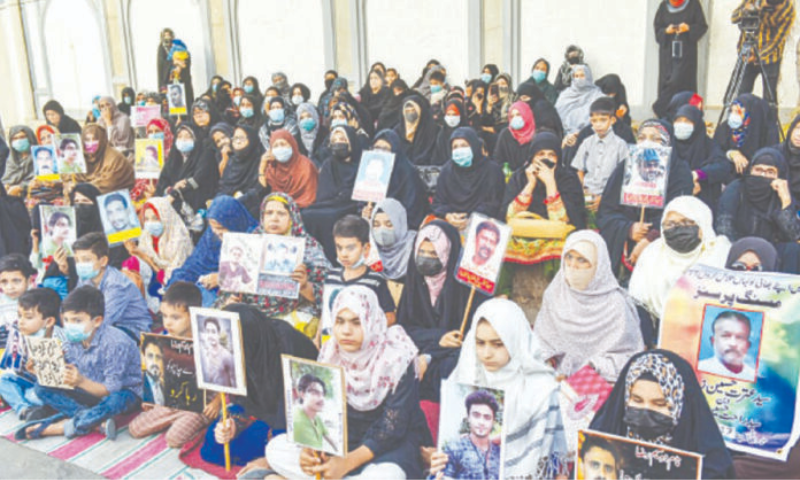
A Commission of Inquiry on Enforced Disappearances (COIED) has been working to redress grievances and complaints of thousands of alleged missing persons in the country for over a decade. Many of the cases were reportedly resolved, where some returned home and others did not pursue their cases.
Reports say the majority of the missing persons are from the two provinces; Khyber Pakhtunkhwa and Balochistan, followed by others. Both the KP and Balochistan provinces are worst hit by the incidents of militancy in the last two decades.
In its latest report by the Missing Persons Commission, the Supreme Court of Pakistan was told that it had disposed of approximately 8000 cases of missing persons out of the total 10,000 complaints it received. The report reveals nearly 3500 complaints were received from Khyber Pakhtunkhwa and 2100 from Balochistan.
Some of the human rights groups, political forces, or pressure groups are exaggerating the figure to put pressure on the government and state institutions. Some rights groups are allegedly linked to militant groups to malign the government on this sensitive issue.
There are some families, who are genuinely raising their voices as either, they are unaware of the whereabouts of their missing family members or misled by some ‘vested political elements’ that their family members are in unlawful custody of the security forces.
However, the security officials familiar with the issue, say the majority of the missing persons are either found in the camps of the terrorists or have been living across the border. Some of the militants killed in clashes with the security forces were found named as the missing persons or some have done suicide attacks on the security forces, but their names were registered with the commission. In some cases, the security officials claimed, families of the missing persons fled their houses when any clue was found to inform them.
However, no one can deny the fact some persons were taken into custody, who were suspected of involvement in terrorist activities or high-profile terrorists, and before declaring them in custody, their cases are thoroughly investigated. It is a difficult task for law enforcement agencies to produce them in a court of law without proper pieces of evidence, and they are set free.
Reports there are nearly 50 Internment Centres in Pakistan where the suspected militants, their supporters, or facilitators are kept after their categorization as white, brown, and black.
Such centers are not something new or unusual in the world, but in the special security situation, such steps are needed to combat terrorism. In the United States of America and other developed worlds, high-profile criminals and terrorists are kept without producing them to the usual court of law. Guantanamo, Bagram, and Pul-e-Charkhi were used to keep high profile or most-wanted terrorists there. No one or the rights did not press such issues as they are doing in Pakistan’s case.
The missing persons issue is taken as a serious issue by the government of Pakistan formed a high-level commission under the chairmanship of a retired judge of the Supreme Court of Pakistan. This reflects the sensitivity of the issue and thousands of complaints were resolved.
Apart from having a high-level independent commission on the enforced disappearances, the federal government has decided to reconstitute a cabinet committee on the subject. In a recent press conference, law minister Azam Nazeer Tarar along with information minister Ataullah Tarar argued that the missing persons issue will take time, and it could not be resolved overnight.
Balochistan is facing the worst kind of terrorism and some rights groups are claiming that more than 7000 are missing in the province. Chief Minister Balochistan Sarfaraz Bugti also announced recently to formation of a committee to look into the issue. However, the committee will also give recommendations to the government on the security situation and a meaningful dialogue with different stakeholders.
In the last two-and-a-half years, there has been an unprecedented rise in terrorist attacks on the security forces and government installations in the country, particularly in Khyber-Pakhtunkhwa and Balochistan.
The latest rise in terrorism is allegedly linked to the safe havens of Pakistani militant groups inside Afghanistan. Islamabad has been repeatedly pressing upon Kabul to stop supporting or facilitating the Pakistani militants. Several attackers were found involved in the high-level attacks inside Pakistan from across the Afghan border.
The rise in terrorist attacks is interlinked with the missing persons issue as some groups have been protesting this issue through rallies. However, the claims of enforced disappearances allegedly by the security agencies are based on mere claims without substantial pieces of evidence, except in few cases.
Pakistani authorities are suspecting such groups of using the issue of missing persons as mere a political stunt. The government should investigate every claim and listen to the grievances of the affected people giving the benefit of the doubt that the families might be unaware of the involvement of their ‘loved ones’ in any anti-state activities.
If look into the complaints of the missing persons, whose whereabouts are, either, unknown or taken into custody by the law enforcement agencies might have any direct or indirect links with the terrorist organizations. Many of the suspected individuals were declared innocent and set free once investigated by the security agencies.
This is a difficult phase for a family, whose member is missing without having no clue on his whereabouts. The government needs to apprise the apex court and government as to what is the reality and counter the propaganda by some vested interest groups.









